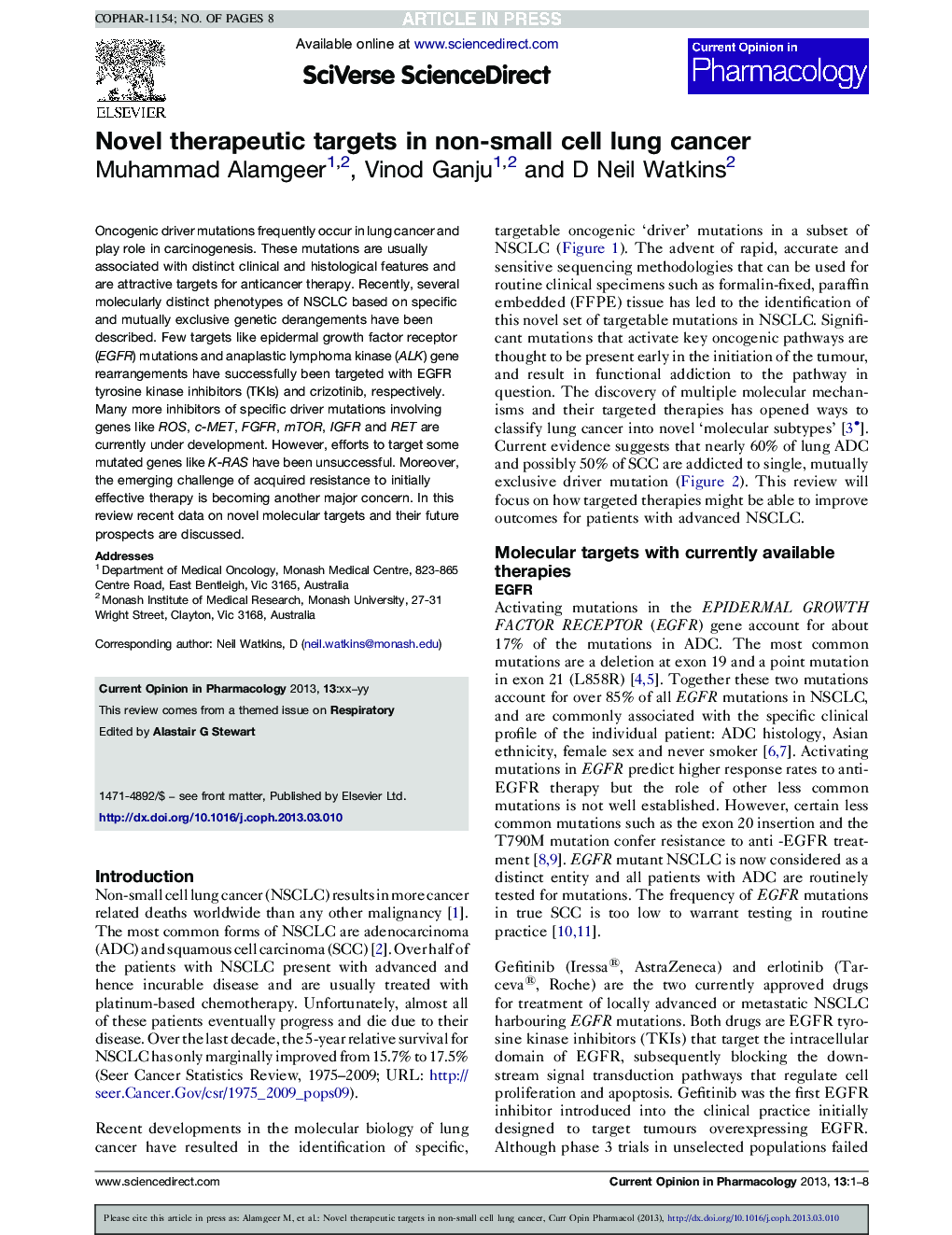| Article ID | Journal | Published Year | Pages | File Type |
|---|---|---|---|---|
| 5826284 | Current Opinion in Pharmacology | 2013 | 8 Pages |
Abstract
Oncogenic driver mutations frequently occur in lung cancer and play role in carcinogenesis. These mutations are usually associated with distinct clinical and histological features and are attractive targets for anticancer therapy. Recently, several molecularly distinct phenotypes of NSCLC based on specific and mutually exclusive genetic derangements have been described. Few targets like epidermal growth factor receptor (EGFR) mutations and anaplastic lymphoma kinase (ALK) gene rearrangements have successfully been targeted with EGFR tyrosine kinase inhibitors (TKIs) and crizotinib, respectively. Many more inhibitors of specific driver mutations involving genes like ROS, c-MET, FGFR, mTOR, IGFR and RET are currently under development. However, efforts to target some mutated genes like K-RAS have been unsuccessful. Moreover, the emerging challenge of acquired resistance to initially effective therapy is becoming another major concern. In this review recent data on novel molecular targets and their future prospects are discussed.
Related Topics
Life Sciences
Neuroscience
Cellular and Molecular Neuroscience
Authors
Muhammad Alamgeer, Vinod Ganju, D Neil Watkins,
